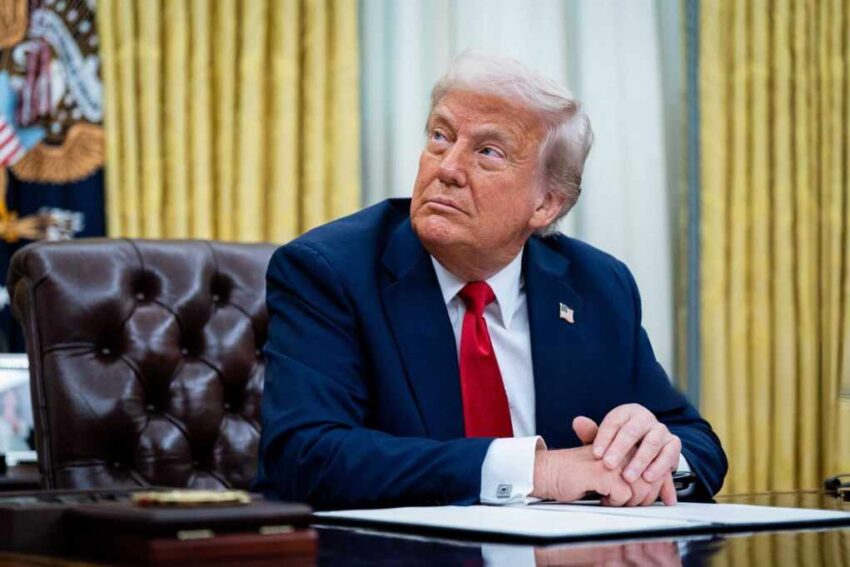President Trump’s warning to Canada that recognizing a Palestinian state could torpedo the U.S.-Canada trade deal has set off a diplomatic firestorm that may leave America’s northern neighbor facing punishing tariffs and the White House more isolated than ever among Western allies.
At a Glance
- Trump threatens to block a U.S.-Canada trade agreement if Canada recognizes a Palestinian state at the U.N.
- Canada plans conditional recognition, demanding Palestinian Authority reforms and exclusion of Hamas from government.
- France and the United Kingdom have already announced similar moves, signaling a major Western policy shift.
- A 35% tariff on Canadian goods looms if trade talks stall, putting North American industries at risk.
Trump Draws a Red Line on Trade and Foreign Policy
President Donald Trump, never one to mince words when it comes to defending American interests or standing with Israel, put the Canadian government on notice this week: Go ahead and back a Palestinian state at the United Nations, and you can kiss a favorable trade deal goodbye. Trump blasted Canada’s left-leaning Prime Minister Mark Carney on Truth Social, warning that “it will make it very hard for us to make a Trade Deal with them. Oh’ Canada!!!” as trade negotiators scramble to avoid a 35% tariff that would devastate Canadian exporters and ripple across North American supply chains.
The timing could hardly be worse for Carney, whose government announced it would join France and the United Kingdom in supporting Palestinian statehood at the U.N. General Assembly in September. Adding fuel to the fire, Canada’s recognition is conditional—only if the Palestinian Authority kicks out Hamas, holds legitimate elections, and demilitarizes. That’s a tall order, and one critics say is pure wishful thinking. Still, the move marks a sharp break from years of Western unity on the Israeli-Palestinian issue, and Trump is making it clear the United States will not be strong-armed by globalist virtue signaling, especially not when it puts Israeli security and core American interests on the line.
Canada Sides with Europe, Conditions Recognition on Palestinian Reforms
Canada’s Prime Minister Carney recently announced a plan to recognize Palestine, citing goals of “preserving a two-state solution” and “standing with all people who choose peace over violence or terrorism.” The recognition is, however, conditional on the Palestinian Authority implementing reforms, holding elections in 2026, and excluding Hamas from any future government participation. France and the U.K. have expressed similar intentions, while countries like Australia and Finland are reportedly considering their positions.
The U.S. has chosen to boycott the U.N. conference, referring to it as a “publicity stunt” that could reward extremism and undermine Israel’s right to exist. The Trump administration emphasized its stance that recognition should not reward groups like Hamas. Canada’s announcement follows closely after the events of October 7, 2023, when a significant escalation of violence in Gaza occurred, resulting in numerous casualties among Israeli families. The recognition of statehood for the Palestinian Authority, despite its conditions, raises questions about the broader implications for diplomatic relations in the region.
Economic Consequences: Tariffs, Trade, and America First
The implications of the situation are significant for both Canada and American jobs and industries that depend on cross-border trade. Trump’s proposed 35% tariff could impact Canadian sectors such as automotive and agriculture. This also sends a message to other U.S. allies regarding the prioritization of geopolitical considerations over economic realities: the U.S. government may not support decisions perceived as detrimental. Trade agreements are designed to benefit the involved parties, and any changes could lead to tensions with nations like Canada or those in Europe. Canadian exporters are preparing for potential consequences, and the Canadian dollar weakened following Trump’s remarks, indicating market concerns over potential trade disruptions with the U.S.
Experts caution that Trump’s approach may lead to increased isolation of the U.S. among Western nations. However, a segment of the American population expresses dissatisfaction with ongoing foreign commitments and the perception that allies benefit from U.S. security guarantees without contributing adequately. This perspective highlights a debate regarding whether American workers and families should bear the costs associated with international policies favored by global leaders.
Western Unity Cracks as U.S. Stands Alone
The fallout from this diplomatic showdown goes far beyond tariffs. By going rogue on Palestinian statehood, Canada, France, and the U.K. are driving a wedge into the Western alliance, handing propaganda victories to the likes of Hamas and Iran. The Trump administration’s fierce opposition—rooted in the belief that you don’t hand a state to terrorists or their enablers—may leave the U.S. increasingly isolated at the U.N., but it draws a red line for allies who’ve forgotten what real leadership looks like. Humanitarian groups may cheer Canada’s move, but pro-Israel organizations and national security hawks see it for what it is: a dangerous precedent that rewards bad actors and punishes those who put principle over popularity.
For now, all eyes are on the September U.N. vote—and the Friday trade deadline. If Carney blinks, the U.S.-Canada relationship might survive. If not, expect tariffs, a diplomatic cold war, and another reminder that when Trump says America comes first, he means it.
Click this link for the original source of this article.
Author: Editor
This content is courtesy of, and owned and copyrighted by, https://deepstatetribunal.com and its author. This content is made available by use of the public RSS feed offered by the host site and is used for educational purposes only. If you are the author or represent the host site and would like this content removed now and in the future, please contact USSANews.com using the email address in the Contact page found in the website menu.








